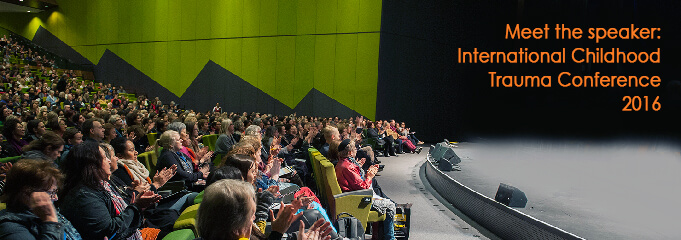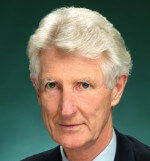
February 12, 2016
Meet the Speaker: Emeritus Professor Russell Meares
In this week’s meet the speaker series – the third so far – we learn more about one of our Australian Child Trauma Conference Presenters; Emeritus Professor Rusell Meares and the concept of ‘Analogical Connectedness’.
 What was a pivotal experience (the “spark”) that started you off in your research and/or practice?
What was a pivotal experience (the “spark”) that started you off in your research and/or practice?
Multiple “sparks,” arising in conversations with my friend Bob Hobson — his notion of a symbol that was not a Freudian symbol but a “form of feeling;” his view that therapy depends upon transforming the therapeutic conversation that one first enters into another which manifests a paradoxical unity and duality of relatedness. On somehow finding Hughlings Jackson —his notion of the paradoxical doubling of self and its emergence through “co-ordination.” Intimations, conveyed in my adolescence by the writing of Virginia Woolf, of an attempt to discover the fundamental patternings of existence by means of a thought process which resembles both poetry and music and which is not logical. Freud’s comparison between the therapeutic relationship and a spielraum (playroom). This led to “The Metaphor of Play.”- Who from your childhood would have known that you would do the sort of work you are doing? And why?
My parents, one a psychiatrist and the other a musician. My father’s book “The Door of Serenity” was the inspiration and my starting point in the development of the Conversational Model, created in collaboration with Hobson. - What has been the most important insight that you have derived from your work that you hope others would find interesting?
The idea that an apparently inconsequential little game played between mother and child, which Trevarthen called the proto-conversation, is the essential starting point in the development of that kind of consciousness, unique to humanity, which is characterized by the capacity to use symbols and which William James called self. - What is one new idea that you are hoping to share with delegates at the conference in 2016?
That relational traumata are most importantly treated relationally; the therapist develops a relationship with the patient which is one of “analogical connectedness.” In the therapeutic conversation, an analogue is a “form of feeling.” The first analogues for the child were created by the mother’s voice and face.
If you would like to hear more from Russell Meares, be sure to register for the 2016 International Childhood Trauma Conference. You can find out more here.
